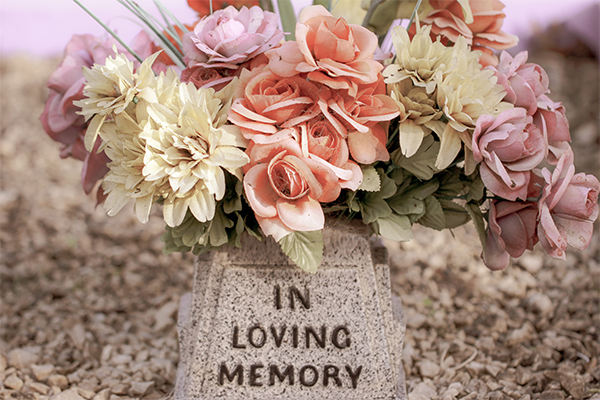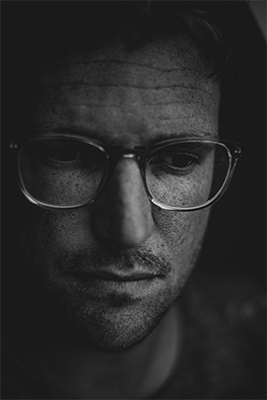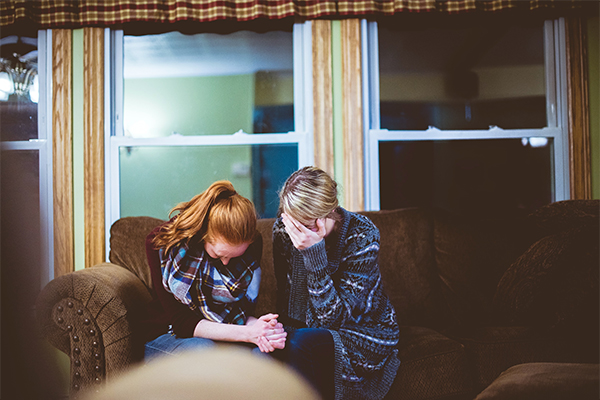The Most Wonderful Time of the Year… Except When It Isn’t!!!
It’s that time of year again! The holiday season is officially here. Christmas decorations and treats are on full display in the stores. Radio stations are starting to mix in holiday favorites, both old and new. Families are preparing for their holiday traditions. Holiday movies and stories focusing on love, family, joy, peace, and hope are everywhere. For many people, it truly is the most wonderful time of the year. For most of my life, it was easy for me to be a part of that group because it is usually easy for me to get into the festive mood and to see goodness in people during the holidays more than at other times of the year. This year is proving to be a much different story, though. This year, I’m finding it far easier to feel sadness than joy, to feel misery than hope, emptiness than fullness… and peace… peace feels like a foolish wish. For me, like many others, the holiday seasons have become a greater reminder of what I have lost than what I have to be thankful for.
Before I share the story of why this year is so different for me, I want to make it clear that the focus of this blog is to discuss and present methods of coping with loss during the holidays, especially regarding the death of a loved one. This blog is going to consist of three different parts. The first part of this blog will be me sharing the story of my tragic loss, which may be difficult or unpleasant for some to read. I spent a lot of time deliberating whether I should cut this part down or take it out completely, but I chose to keep it in because sharing the story helps me process through my own emotions. It also allows you to see my heart and desire in this message. The second part of the blog will focus on the emotional struggles we experience as we approach the holidays after loss, so we can have a greater understanding of what we are fighting against. The third part will focus on how we process through our emotions as well as on coping methods/strategies to try to make it easier to survive and maybe even celebrate the holidays this year. I will have the sections labeled so you may skip ahead in the blog If you wish. My main goal for this blog is to help others that are experiencing similar struggles as I continue to work on myself.
Part 1: A Tragic Loss
What makes this particular season so hard for me this year is because of the stark, jarring contrast between what I had anticipated for this season and what this season is actually bringing. The holidays this year were supposed to be the best yet as my wife and I were planning to celebrate the birth of our son, Titus Solomon Frank, who was due to be born on December 7. Unfortunately, what we think is supposed to happen isn’t always what actually happens. At the beginning of July, my wife’s water broke while only 17 weeks into the pregnancy. A couple of days later, there was a prolapse of the umbilical cord. Despite the great difficulty he was going through, Titus’ heartbeat maintained a rate of 160 beats per minute for three whole weeks! Every day we would check his heartbeat on our home Doppler device, and every single time it was right around 160 beats per minute… every single time until the morning of July 22. That morning we couldn’t find his heartbeat, so we rushed to the hospital to have them check on him. When it was confirmed that his heart had stopped beating, it felt like mine had stopped as well. It seemed like in just a moment, our greatest joy transformed into our greatest sorrow. My wife had to be induced to force the birth of our son’s lifeless body, a process that lasted until after 1:00 the next morning. As we said goodbye to our little boy, we also said goodbye to all of the hopes, dreams, and prayers that we had for him.

The loss of Titus is not my first experience with sorrow and death as I come from a very large extended family, and during my life, I have experienced the loss of many loved ones. Some of my earliest memories as a child include death, as I remember being at a funeral for one of my uncles and also several moments of my grandmother’s losing battle against cancer. I don’t think I really understood what was going on at my uncle’s funeral, but watching my grandmother’s decline and visiting her in the hospital was when death and the loss it brings first became real to me. Now, death has claimed all of my grandparents, and I have lost several aunts, uncles, and friends over the years as well. This isn’t even the first miscarriage my wife and I have suffered through. However, this was the farthest we had made it, and it was the first time I experienced holding my lifeless child in my arms. No matter how much sorrow I had experienced before in my life… Nothing prepared me for that moment, and no words can accurately express what I felt then. Now, as we approach the holidays, rather than looking forward to this season with joy, I just find myself looking at a lot of reminders that Titus isn’t with us and won’t be a part of this season as we had planned, hoped, and dreamed. Instead of celebrating the gift of my firstborn child, I’m reminded of what my wife and I have lost.
Although it is easy to focus on our pain and feel like we are alone in our suffering, I know that my wife and I aren’t the only ones struggling this year. Many have lost loved ones, and for some that death was near the holidays, making the season even more challenging to get through. My desire for my wife and I this season is to not be consumed by despair and anguish but to find methods of coping and managing that allow us to still celebrate and engage in the holidays freely while still honoring and mourning the loss of our precious son. I hope that writing this blog about my journey to help my wife and I may also be an opportunity to help you readers as well.
I also want to point out that although much of this blog will be focused on loss due to the death of a loved one, I know that death is not the only form of loss that people are struggling with right now. For many, divorce is another source of great sorrow that can make the holidays feel empty. For others, something happened to create an emotional rift leaving them feeling disconnected from family and friends. Others may struggle with an illness or handicap that prevents them from being able to fully engage in the holiday season as they used to. Maybe it’s simply the physical distance that separates us from loved ones if we can’t travel and meet up this season. There are many avenues or sources of loss, but regardless of the source, if you are struggling with sorrow this season, I hope that this blog may help you find ways to work through and cope with your burden as we close out the year.

Part 2: The Struggle is Real
I think most who have experienced a great loss will agree that the greatest struggle is dealing with the emptiness inside our hearts and the sorrow that accompanies it. The feelings that stem from the absence of their presence in our lives can be quite intense and hard to escape. In many ways, sorrow is like a black hole, at least as it is portrayed by science fiction shows and movies. It pulls you in with strong gravitational forces that get stronger the closer you get to it, that distorts perception of time and that distorts the way light travels so it looks more dark and empty the closer you get.
Think about it this way, as you focus on your sorrow the pain grows stronger, which leads you to think upon it even more, which just makes the pain even stronger. This cycle will continue until your whole life crumbles under the weight of your sorrow or until you find a way to break free of the cycle. When we are dealing with sorrow we often lose our perception of time as well, and what may seem like moments of sorrow to us may actually consume hours, days, weeks, months, or even years of our life. In many ways, sorrow leaves us stuck in a moment, and it can be hard to see or move past that moment. One of the most dangerous ways that sorrow affects us is by blinding us to the light that is being shared by those around us. We become unable to see how much others love us and are there to help us if we let them. We become blind to truths and people in our lives that provide joy, hope, and love.
Another effect of sorrow is the tarnishing of our memories because many memories will start to affect you much differently than they did before your loss. Memories that used to bring happiness and laughter will now bring great sadness and weeping. Some memories just leave you feeling empty and broken. Remembering the hopes and plans that you had made or shared with them can also cast dark shadows over your future. As we experienced the loss of Titus, we became acutely aware of how our unfulfilled hopes and dreams for him can cause great confusion and leave you feeling directionless and purposeless. This can also lead to thoughts of unfairness which can lead to intense anger and bitterness regarding our circumstances or towards others who haven’t suffered the way we have.
I think another thing that is often overlooked or misunderstood when dealing with sorrow is the guilt that can build up as a side effect. I think guilt is another big reason that people dealing with loss struggle through the holiday season. This guilt can present in many different ways, and I think it is often more subtle than sorrow itself. I think many feel guilty at the thought or the act of celebrating the holidays when the one we lost isn’t able to celebrate with us. Sometimes joy itself, even in brief moments, can seem like a betrayal to our mourning processes as we believe we shouldn’t feel any joy while we are going through such sad times. I could see this guilt at times when watching my wife at the Open House for Docere Life Center on July 28, which was less than a week after we lost Titus. The most surprising part though was near the end when she realized she had had a few moments that night where she wasn’t thinking about Titus, and the guilt she felt crashed over her like a mighty wave. This was the moment when I learned just how dangerous guilt can be as we struggle with sorrow.
As I said before, guilt can be very subtle, but the worst part is that guilt leads us to attack ourselves. Much in the same way autoimmune disease causes the body to attack itself, guilt makes us attack our own hearts and souls. This usually stems from a belief that we are not experiencing grief and sorrow in the “right way.” If the loss isn’t recent, guilt leads us to attack ourselves, saying, “you should be over this by now,” and you get angry and bitter with yourself for still grieving after all this time. Guilt can even attack us through the healing process because it can make you feel you aren’t grieving enough if you aren’t grieving as much as you were when you first experienced the loss. Guilt and shame are not healthy because they bring you to a state where you are angry and bitter with yourself, and it can convince you that you don’t deserve to heal from this and you don’t deserve to find joy and peace in life beyond your sorrow. For those dealing with loss, the struggle with sorrow and guilt is very real and can cause a lot of damage if not dealt with properly.

Part 3: How to LIVE with Loss Through the Holidays
One thing that I noticed as I was l preparing for this blog about loss and the holidays was that a big focus was on the word “survive.” As I’ve been writing this blog and processing through my own emotions, I realized that was the wrong approach. The survival mindset was unconsciously setting my focus more intently on my sorrow and taking me deeper into it. Focusing on survival made me feel that surviving is the best I can do while dealing with my loss and the pain it brings. I don’t believe that is true, though. I think if we are truly going to find the healing we need to start by changing our mindset. I also noticed that the survival mindset also made me more likely to pursue coping methods that numb me to the pain instead of helping me work through them. These coping methods tend to become addictions because they numb the pain, albeit temporarily, which leads to repeating it more and more as it becomes less effective. Now I realize that when we think about addictions, it is easy to jump to extreme addictions like alcohol and drug abuse, but we tend to overlook other addictions like emotional eating, binge-watching shows/movies, video games, and even reading books. Anything that serves as an escape because it numbs us to our pain or gives us a small boost of pleasure to cover up our pain can become an addiction. Some of these aren’t unhealthy in their own right but often become unhealthy because we use them to hide from our pain while preventing ourselves from doing the real work of processing through our emotions. With that in mind, my goal is no longer just to SURVIVE the holidays but to LIVE through the holidays even with my loss.
What we think is incredibly important! If we think the same thought enough, it becomes ingrained in our minds as a belief. This happens through a process called neuroplasticity. That’s where the signaling pathways in the brain become easier and easier to use with repetition and sometimes become automatic. This happened when you learned how to stand and walk, but it can also happen with our thoughts, beliefs, and emotions. Once a thought becomes a belief, it affects the way we react to the world and to our circumstances, and one of the primary ways we react is through our emotions. If a belief is reinforced enough, it becomes so ingrained that it becomes a part of you, and you may react to it without consciously realizing it. This is why we sometimes get emotional without understanding why. Looking back at my life I can see how these processes have worked in my own life. Throughout various stages of my life, I have struggled with feeling like I wasn’t good enough and at times, even that I was a failure. This stemmed from thoughts that I didn’t measure up in specific situations or roles, and I let those thoughts echo in my mind enough times for me to start believing them. With those beliefs came strong emotions of sadness, self-pity, and low self-worth. This affected the way I reacted to criticism, difficult times, and even good opportunities, as I didn’t feel worthy of them. My actions and reactions to life became directed by those emotions… that stemmed from a belief… that stemmed from repetitive thoughts. When I refocused my thoughts with grace and realized that I’m not a failure, but I am someone who is still learning and growing, it radically changed my view of myself and how I live in this world.

I had to go through that process again in order to change my mindset from a “survival” focus to a “live life” focus as I look ahead to the holidays. It started with realizing that healing from loss is not about getting over loss but learning how to live with loss. I can’t go back to how things were before because that loss is forever a part of me, but if I stay stuck in that moment forever, it will keep me from living in the present and limit my future. Another way to put it, is that it’s learning to not let the pain of loss keep you from living your life. It’s learning to give yourself grace to not spend every moment of your life thinking about the loss. It’s about giving yourself grace to enjoy life even though your life will never be the same. It’s realizing that you can move forward in your life without forgetting about them. It’s about realizing that sometimes the best way to honor the ones we have lost is to keep LIVING!!!
Starting with a mental focus on living your life is the most important step in the healing process, but that doesn’t mean that we should be completely carefree and open as we approach the holidays. Loss still hurts, and opening the wounds too much can limit the healing process and make it more challenging to control our thoughts and emotions. Part of the challenge of healing is finding the balancing point between opening and processing emotions and going so far that you end up getting overwhelmed by them and sinking even deeper into our sorrow. A good starting point in processing emotions is to keep an emotional journal. I find that the process of taking time to express how and what I am feeling by writing it down helps me to order my thoughts and work through my emotions. Even the process of writing this blog has helped me greatly with managing my own emotional state and the mindset driving it!
What I want to do now is to start looking at some coping methods/strategies to help you find your balancing points as you go through the holidays. As we do this, I feel that it is important to make it clear that there is no specific “right” or “cookie-cutter” way to deal with grief. Everybody experiences grief in their own way and will have their own unique ways to cope with and work through grief. I’m just presenting options that I think might be beneficial to my wife and I and hopefully, they will be helpful to you as well. One key way to live through the holidays is to open yourself to the companionship of family and friends. We often pull away from people by instinct when we are struggling but often connecting with people is one of the best methods for pulling us out of our misery and re-engaging with the world around us. If this seems like a terrifying idea, start small… Have a few people come over or go to a small gathering. Work to reconnect but also give yourself the freedom to say no to a gathering that might be too difficult for you or to leave early if you need to. However, the most important part is to make sure it is for the right reasons. Don’t use it as an excuse to hide away.
It’s also very helpful to plan ahead as much as possible. Set boundaries for yourself ahead of time and prepare responses to questions about your loss and how you are doing in advance, so you are ready to open up more easily or to let people know that you aren’t ready to talk about that right now. You have more control than you may realize regarding how you spend the holidays and how they affect you. It’s good to give yourself the freedom to grieve in the way and the timing that you need to, but it is also important to always keep your focus on trying to work through it and not run away from it. Only you decide what that looks like for yourself, and only you know where your heart is on that, but planning ahead makes it easier to approach the holidays on your terms.

Another good way to cope and work through your pain is often by helping others that are in need. Volunteer/charity work is an excellent way to shift your focus and connect with people in a different way than by going to parties and celebrations. While we were in the hospital saying goodbye to our son and in the months since, the work and support of the AgapéCare Cradle, Bridget’s Cradles, and other ministries have meant so much to my wife and I and have brought light, hope, and love from complete strangers into one of the darkest times of our lives. Maybe you can do that for others and in so doing let some light, hope, and love into your own life in the process. The support we received inspired my wife to start her own little ministry of crocheting hearts and sending them to hospitals around the country so others that experience similar loss may know that they are not alone and that they are loved. The ministry is called Titus’ Heartbeat, and she sends 160 hearts out at a time to honor how his heart rate during those three weeks remained steady at 160. That brings me to another important coping process –finding ways to honor those we have lost. This may stem from holding onto traditions that were shared with them or maybe even finding new ways to honor who they were and what they meant to you!
To sum it all up, set your mind towards living through the holidays and not just surviving them! You are stronger than you realize, and you can honor the ones you have lost in many ways but especially by continuing to live while carrying their memory with you. Don’t be afraid to open up and connect with people but make sure you do it in a controlled way by setting up boundaries and plans in advance. Give yourself grace to experience loss the way you need to but hold on to the desire to LIVE through your pain. Life is messy, and grief can feel even messier, but it never gets better by hiding away!
How Can We Help?
If you feel like it is too much for you to handle alone, you can always call and schedule an appointment with us at Docere Life Center at (316) 837-1273 . Emotional work is one of the many ways that we help people in our clinic, and I believe that our process can help you more quickly find and maintain the emotional balance that you desire and need in your life! We’re here to help! May your holiday season be blessed and full of LIFE!!!

